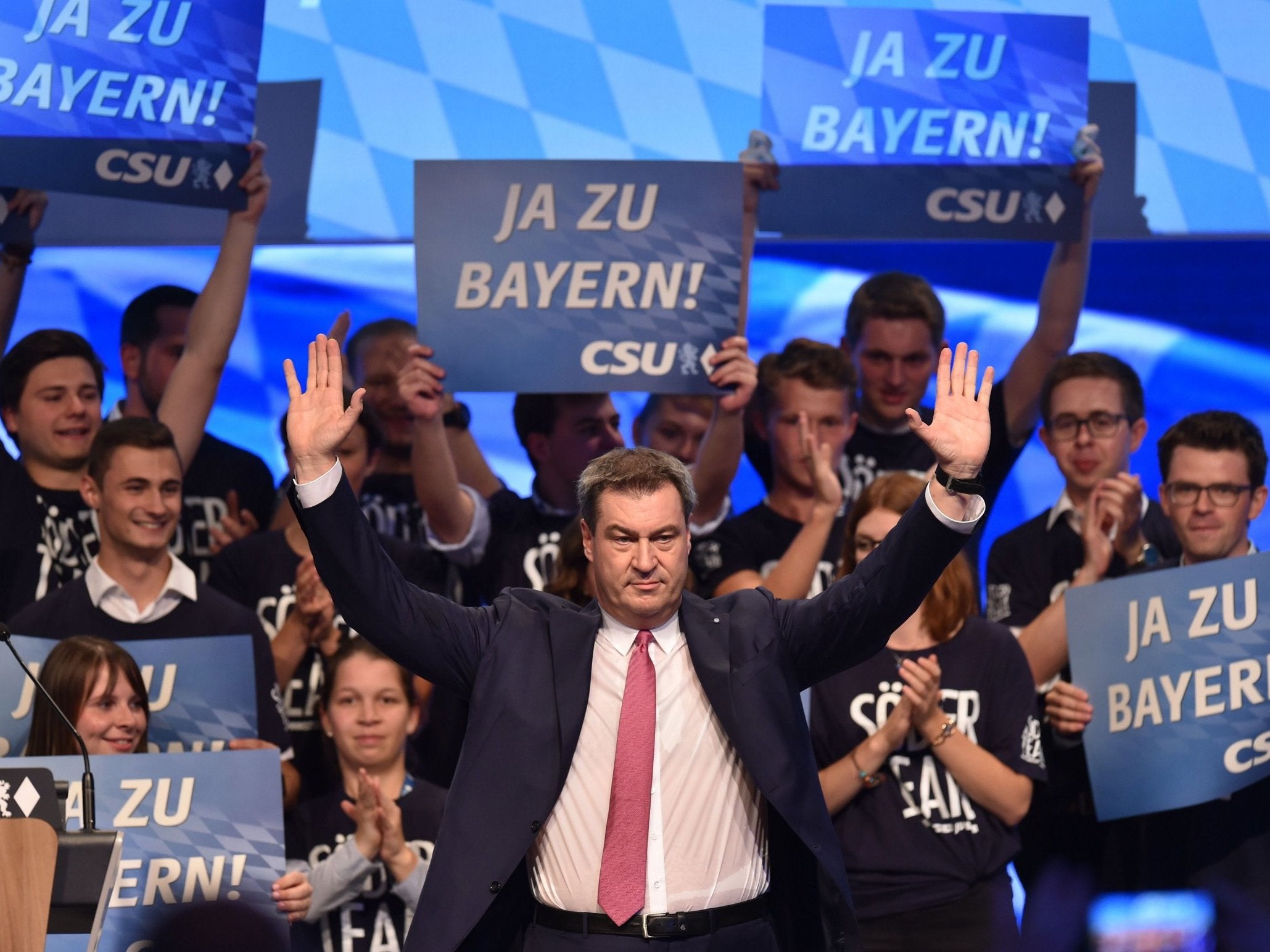Merkel allies face losses as voters flee to far-right AfD ahead of German local elections
Populist Alternative for Germany (AfD) party campaigns against refugees

Your support helps us to tell the story
From reproductive rights to climate change to Big Tech, The Independent is on the ground when the story is developing. Whether it's investigating the financials of Elon Musk's pro-Trump PAC or producing our latest documentary, 'The A Word', which shines a light on the American women fighting for reproductive rights, we know how important it is to parse out the facts from the messaging.
At such a critical moment in US history, we need reporters on the ground. Your donation allows us to keep sending journalists to speak to both sides of the story.
The Independent is trusted by Americans across the entire political spectrum. And unlike many other quality news outlets, we choose not to lock Americans out of our reporting and analysis with paywalls. We believe quality journalism should be available to everyone, paid for by those who can afford it.
Your support makes all the difference.Angela Merkel’s conservative allies in the German state of Bavaria are facing losses in regional elections as their support is eroded by far-right populists.
The Christian Social Union (CSU), which has enjoyed six decades of dominance in the state, is predicted to suffer heavy losses in the vote on 14 October.
A recent opinion poll predicted the CSU could lose nearly 13 per centage points as voters flock to the anti-immigrant Alternative for Germany (AfD).
CSU leaders have lurched to the right in response to the AfD’s gains – nearly collapsing the coalition government – before changing course in an attempt to reclaim the centre ground.
The party is part of Germany’s grand coalition with its sister party, Ms Merkel’s Christian Democrats (CD) and the centre-left Social Democrats (SDP).
Support for the CSU stood at 35 per cent in the infratest-dimap poll, compared to the 47.7 per cent it won in the last regional election in 2013.
The poll showed the AfD on 11 per cent, which would be enough to enter the Bavarian state parliament for the first time.
“The polls this week weren’t pretty,” Bavaria’s governor, Markus Soeder, said at the start of a day-long party congress aimed at rallying conservatives a month before the election. “But they are a chance for a wake-up call.”
Among the reasons cited for the electoral decline of the CSU are the rise of the AfD, which has campaigned staunchly against the influx of refugees and migrants in recent years, and a series of gaffes by Horst Seehofer, the head of the party.
Both Mr Soeder and Mr Seehofer, who is Germany’s interior minister, made impassioned speeches to their supporters calling for measures to prevent a repeat of the one-million-strong wave of migrants who entered Germany in 2015.
“Those who are not entitled to protection have to return to their countries of origin, because ... no country on this planet can take in unlimited numbers of refugees and migrants,” Mr Seehofer told hundreds of delegates at the congress.
However, both men also reiterated their opposition to extremism amid calls for better scrutiny of the AfD after some of its leaders joined far-right activists in the eastern city of Chemnitz in protests sparked by the arrest of two migrant suspects in a fatal stabbing.
Mr Seehofer, who has been at odds with Ms Merkel since her decision to open Germany’s borders to over a million refugees and migrants, insisted his party stands for liberal values and would not tolerate antisemitism, xenophobia or right-wing extremism.
“Fight, fight, fight,” Mr Soeder said. ”It would be a shame to leave Bavaria to the wrong hands.”
Join our commenting forum
Join thought-provoking conversations, follow other Independent readers and see their replies
Comments